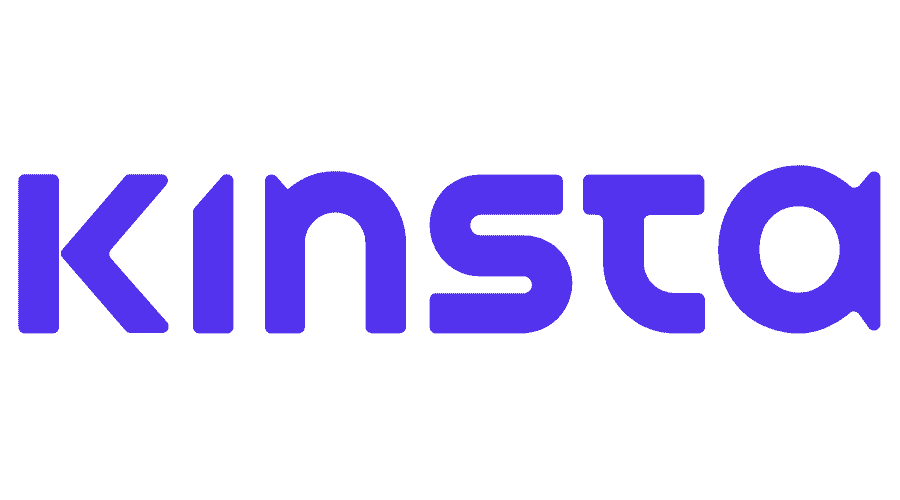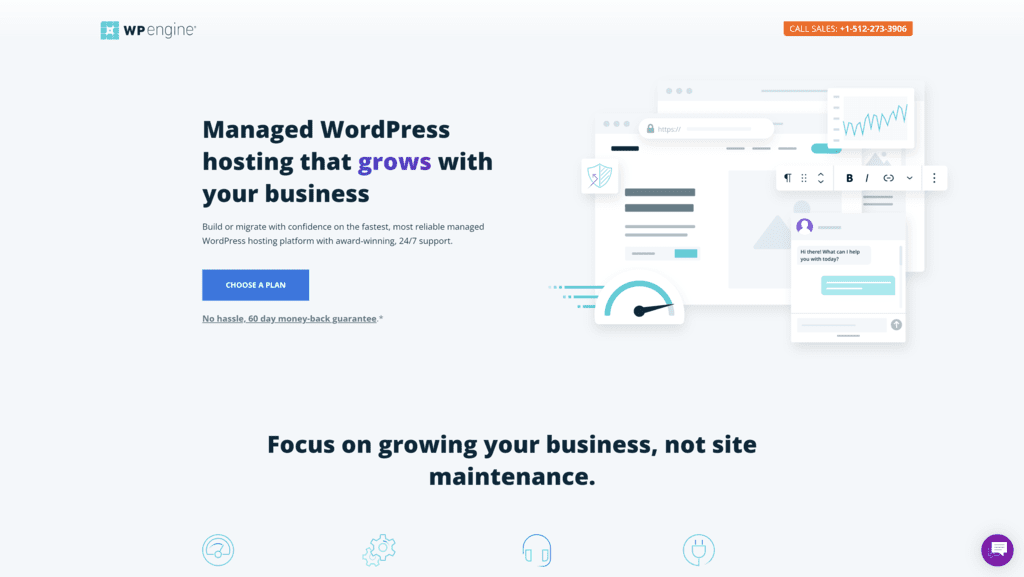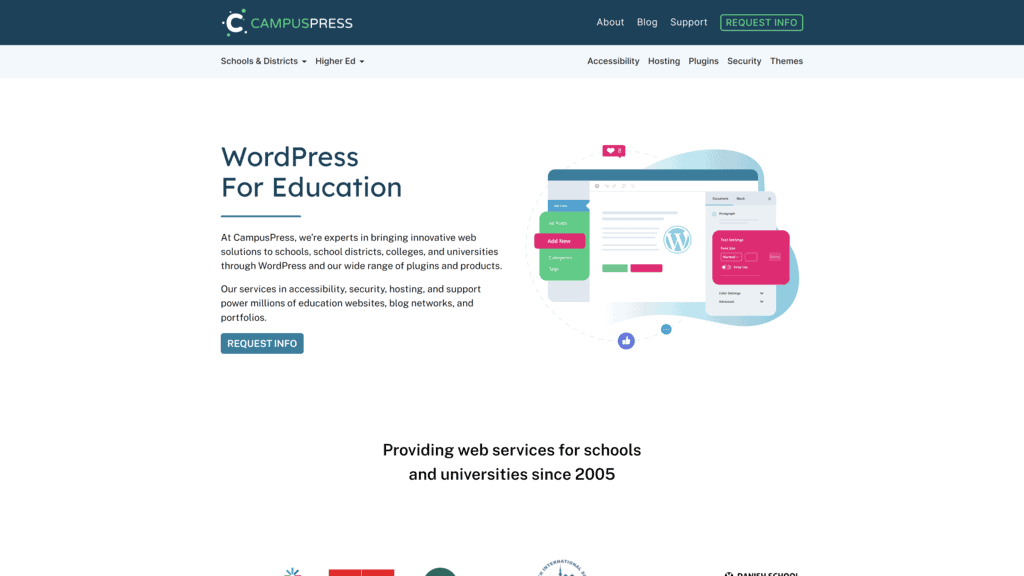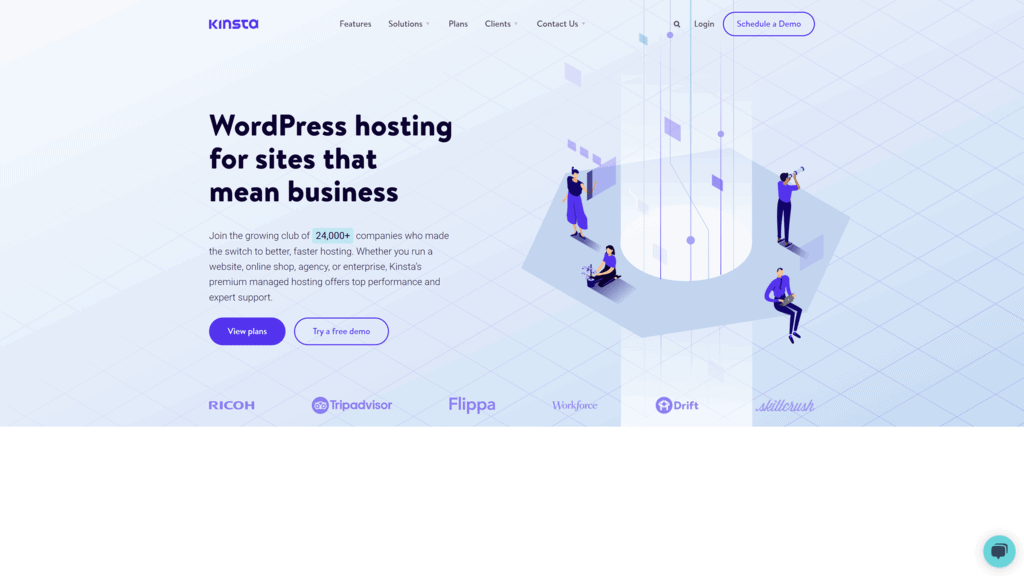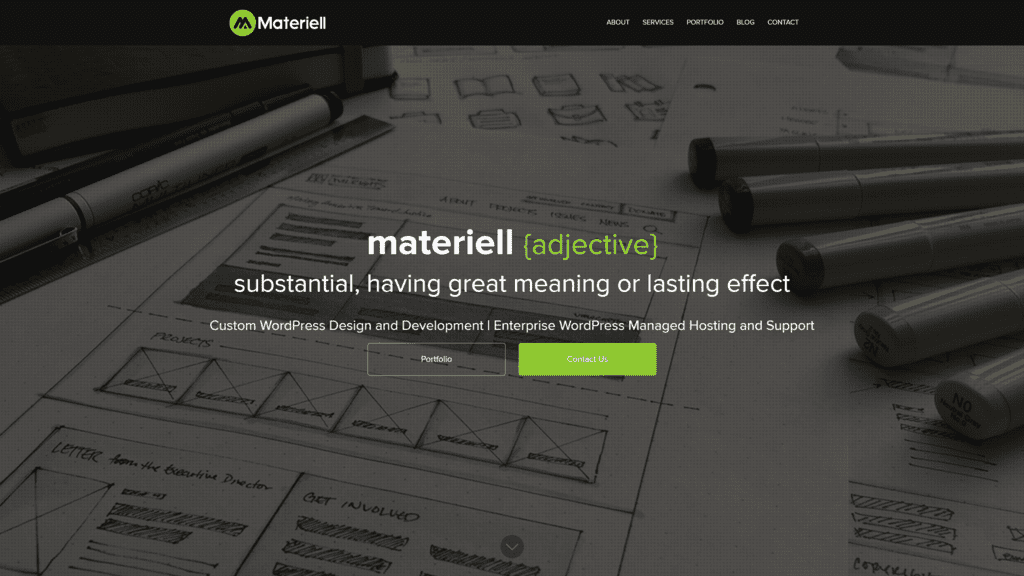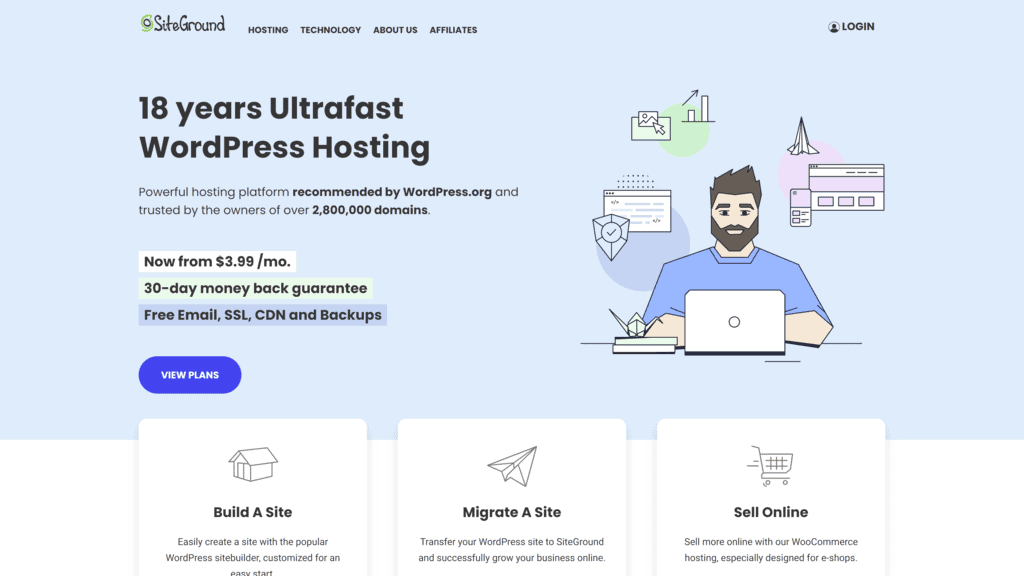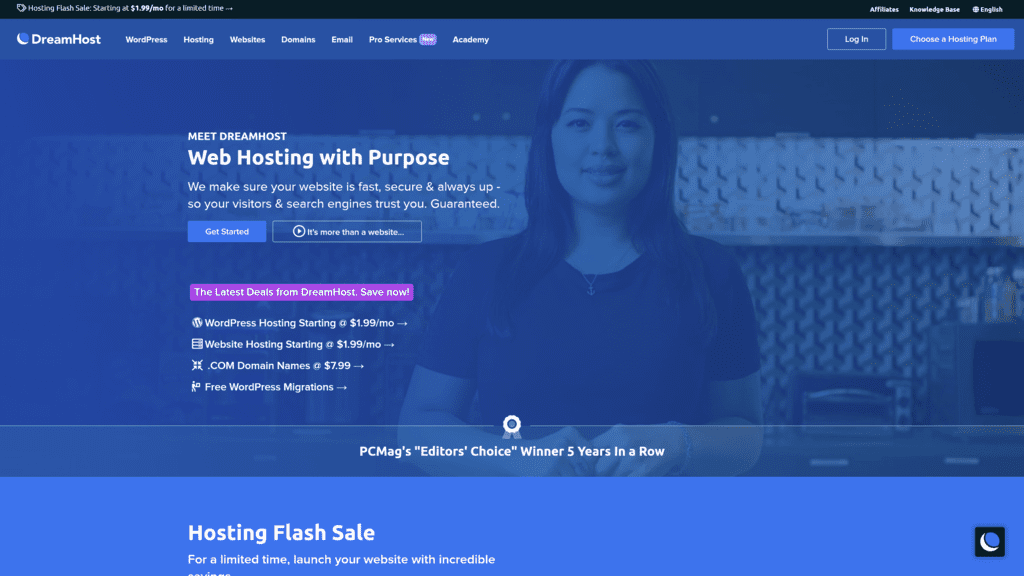WordPress is one of the leading website creation platforms and content management systems.
While there are two separate versions of WordPress (WordPress.com vs WordPress.org), many larger sites and educational institutions nearly always prefer their own instance on WordPress.org.
Regardless of which version is chosen, this CMS is a powerful solution for educational institutions, yet still required hosting.
Today we’re talking about the best WordPress hosting for education – how it works, what option to choose, and how to get your site online.
Contents
Best WordPress Hosting For Education – Shortlist
Our Top Picks
An overview of favorite WordPress hosting for education options from our comprehensive list below.
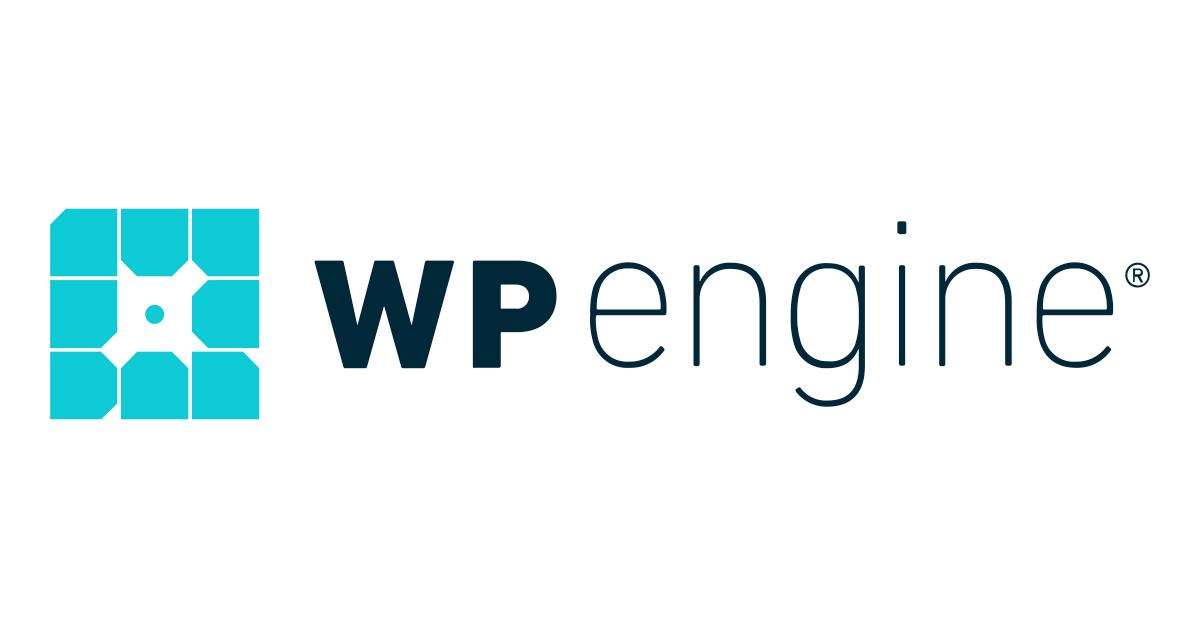
- The #1 hosting platform for WordPress. This is the same service that powers Bloggingtips.com
- Massive set of features, including automated backups, automated plugin updates, and highly secure, efficient, and scalable hosting

- This hosting company's main focus is educational sites - they only work on these, so they know the space well
- Services include accessibility, security, hosting, and support for education-related blogs and websites
An Overview of WordPress Hosting for Education
WordPress hosting providers specialize in cloud storage, speed, and login capacity.
These providers ensure your website is accessible to anyone, anytime, anywhere.
However, some are more suited to handle the specialized needs of educational institutions.
What is WordPress Hosting for Education?
WordPress hosting for education is amazingly flexible.
WordPress handles anything from simple classroom blogs to entire district or university websites.
Having a managed hosting account entails the ability to manage large numbers of logins simultaneously.
When deciding which hosting provider best fits your purposes, server capacity and speed are just as important as the price.
Can I Make Education Sites in WordPress?
Yes, you can make education sites in WordPress.
WordPress is among the top go-to platforms for creating educational websites.
With almost 41% of the U.S. higher education market, WordPress outranks and outperforms every other website builder of its kind by a significant margin.
Its recommendation process ensures hosts are compatible with free WordPress themes and plugins.
Many hosting providers have sites created with WordPress in mind.
Is WordPress Free for Educators?
The WordPress website does have free hosting and great customer support.
Any costs would be for a domain name and/or a managed hosting service.
These additions come at no outrageous cost.
There are many affordable and scalable options, and we will look at six excellent options.
Can Students Get Free Domains and Hosting?
Another YES! Students can have free domain names and receive free hosting.
Some hosting providers will include up to 40 student accounts with the purchase of a teacher account.
Students can create their own free account not in conjunction with a teacher should they desire one.
They need to register for a student developer package, and then they can get their own domain.
Who Provides WordPress Hosting for Education?
Plenty of WordPress hosting sites are available.
With well over 300,000 hosting websites in existence, it can be somewhat overwhelming to know which hosting site would be the best choice for your purposes.
Most hosting platforms offer fast speeds, easy accessibility, strong security, and customer service.
But not all are equal to the special attention education sites need.
We chose these six amazing hosts to help you locate one that matches your needs and budget.
1. WP Engine
WP Engine is a completely scalable managed hosting site for a single educator site to a larger agency with 30 or more sites to host together.
Best For:
WP Engine is ideal for a smarter, more personalized educational experience.
It’s capable of hosting both online and blended learning practices.
Notable Features:
- Free migration for your site to integrate with WP Engine.
- Friendly for single-site users to a multisite network
- Beginner-friendly resources with fee and free WordPress theme and plugin choices.
Pros:
- 60-day free trial and no long-term commitment
- Test and try plugins in a staging area before they go live on your site.
- Responsive staff and technical support
- Scalable
- Free data backup and restoration
Cons:
- WordPress only platform
- Increased traffic-increased fees
- More expensive for startups than other platforms
Is WP Engine Hard to Use?
WP Engine web hosting is not hard to use if you already have a domain name, email account, and use one or more WordPress sites.
They are solely a managed hosting site with expert support and stress-free data backup and restoration as a part of all of their plans.
WP Engine Pricing & Plans:
- The Startup: $23 USD monthly
- The Professional: $56 monthly
- Advanced Solutions: contact for a quote
Our Take on WP Engine
WP Engine is solely a managed host site with customer service, security, and features that are worth the additional expense.
2. CampusPress
CampusPress is an Australian-based company with a global staff.
In business since 2005, CampusPress hosts around one in every three education blogging networks, student and educator portfolios, and agency websites.
Best For:
CampusPress is widely used by higher education organizations with a multisite network, although they can easily handle K-12 agencies as well.
Notable Features:
- Nightly security sweeps have strong firewalls with solutions presented within 24 hours.
- Accessible WordPress themes are readily available, and you can customize new themes.
- Whether CampusPress plugins or from a third party, you will have plenty of options to create the user experience you desire.
Pros:
- Global presence
- 24/7 accessible
- Responsive staff
- Top-notch security
- Multisite web applications
Cons:
- The pricing of CampusPress may be too expensive for smaller schools or educator groups.
- Usability issues with keyboards and contrasting colors with some themes and plugins.
- Limitations with compatibility between plugins. Sometimes you don’t even know there is an issue until you play with it.
Is CampusPress Hard to Use?
CampusPress is not hard to use.
Their customer service staff and WordPress experts will work with you to set up and maintain your university websites.
CampusPress Pricing & Plans:
CampusPress has plans starting at $2,000 annually.
Complete a simple “Request a Quote” form and a staff member will contact you to determine the needs of your school or education site.
Our Take on CampusPress:
With its extensive experience with global education agencies, CampusPress is a great option for larger school districts or higher education agencies.
3. Kinsta
If Google Cloud and WordPress had a baby, Kinsta would be it.
The combination of the two make this managed hosting site amazingly fast, flexible, and user-friendly.
Best For:
Non-technical users love the features and services Kinsta offers.
Their knowledgeable staff is experts who can make the complex understandable.
It is not an all-in-one hosting site.
Medium to large websites that experience traffic spikes will find Kinsta more than suitable to their needs.
Notable Features:
- The best of Google Cloud and WordPress
- MyKinsta dashboard
- Guaranteed 99.9% uptime
Pros:
- Super-fast speeds
- Google Cloud infrastructure
- Astounding technical support
- Elevated for e-commerce
- Almost hands-off
Cons:
- No email hosting
- Nonexistent phone support
- Hefty price point
Is Kinsta Hard to Use?
Kinsta is both intuitive and innovative.
Their expert technical staff will either walk you through features and processes or do it for you.
Kinsta Pricing & Plans:
- Starter: $30 monthly
- Pro: $60 monthly
- Business 1: $100 monthly
- Business 2: $200 monthly
- Business 3: $300 monthly
- Business 4: $400 monthly
- Enterprise 1: $600 monthly
- Enterprise 2: $900 monthly
- Enterprise 3: $1200 monthly
- Enterprise 4: $1,500 monthly
- All plans include SSL, CDN, Staging, and free migration
- Special Pricing Options for Non-Profit Organizations are also available
Our Take on Kinsta:
Even though it is not a one-stop-shop, the outstanding features and services it provides are mostly worth it.
4. Materiell
Built specifically for schools, Materiell has the reliability and security education sites need.
This US-based company focuses on supporting K-12 and higher education, large or small.
Best For:
Materiell is a partner with Canvas Learning Management System.
It is one of the fastest-growing managed hosting account providers for WordPress.
This goes for K-12 and higher education institutes alike.
Notable Features:
- Certified Woman-Owned Company
- Partner with Canvas LMS
- Understands the needs of districts without experienced webmasters
Pros:
- Designed to be mobile-friendly
- Analytics reports
- Uptime/downtime reporting
- Functionality customized for education
- Able to define advanced permission and user groups
Cons:
- Finding their pricing and plan menu was a challenge.
- Limited information and details about several products and features.
- Blog not consistently updated with relevant information or ideas for the constantly changing educational landscape.
Is Materiell Hard to Use?
Materiell boasts to be able to work with schools that do not have access to experienced webmasters or developers.
Materiell Pricing & Plans:
Services start at $395 a month.
Our Take on Materiell:
Materiell commits to collaborating with clients to develop, maintain, and support WordPress educators and their hosting needs.
For districts and agencies familiar with Canvas, Materiell would be a good fit.
5. SiteGround
SiteGround provides less expensive shared WordPress hosting options.
If offers free student hosting with educator sites.
Best For:
SiteGround is amazing for student blogging and portfolio creation.
It’s also very good at supporting educators with course creation.
Notable Features:
- Comparative pricing to blogging platforms such as BlueHost
- 24/7 support via chat, phone, and knowledge base
- Supports more than 500 apps
Pros:
- Free domain names
- One of a kind anti-bot AI system
- Improved daily backup and restore features
- Automatic WordPress updates
- Consistently early adopters of the latest technology
Cons:
- Limited web space
- The basic plan does not include managed hosting
- Renewal pricing is higher than initial and some competitors
Is SiteGround Hard to Use?
SiteGround’s award-winning and very responsive technical support team makes every effort to get your site up and run as quickly as possible.
SiteGround Pricing & Plans:
- StartUp: Current discounted rate of $3.99 monthly for a limited time
- GrowBig: $6.69
- GoGeek: $10.69
- All plans include
Our Take on SiteGround:
Even with the higher renewal costs, SiteGround is an ideal hosting platform for individual educators and students to create blogs and ePortfolios.
6. DreamHost
DreamHost offers shared hosting account options ideal for individuals and small businesses.
They offer many of the same features but at a more affordable price point.
Best For:
DreamHost is best for WordPress bloggers and course creators desiring an upgrade.
Notable Features:
- Fast load times
- WordPress optimized Servers
- Resource protection
Pros:
- Lots of unlimited features
- Unlimited websites
- 100% guaranteed uptime
- 97-day money-back guarantee
- Install WordPress with a single click
- Monthly, yearly, or three-year plan options
Cons:
- Many dashboard options are additional fees
- Live chat support times vary
- Shared hosting
Is DreamHost Hard to Use?
DreamHost seems to be the easiest of all the hosting providers with its one-click options.
It’s like a Done-For-You feature with a Do-It-Yourself price tag.
DreamHost Pricing & Plans:
- Shared Starter: $2.59 monthly with the 3-year plan
- Shared Unlimited
Our Take on DreamHost:
DreamHost is ideal for individual bloggers and course creators.
It is affordable with features suitable to small business needs.
Why Use WordPress Hosting for Education?
Are you wondering what the special hosting is for and if it is worth the cost?
If so, here are a few reasons why we suggest this type of hosting:
Ease of Use
WordPress is one of the most popular open-source platforms in the world.
The extremely users friendly features and applications along with its consistency to be on the cutting edge of the latest technology make WordPress agile and accommodating for the rapidly changing educational climate.
Student ePortfolios
Students need ePortfolios to showcase their academic skills.
They are crucial in the high-competitive world of higher education and to land that impressive dream job.
WordPress EPortfolios allow students to have ownership transferred to them to keep accessible for their professional goals.
Course Pages
Well-organized and easily accessible online course pages allow educators to ensure student success.
Used in conjunction with Tutor LMS, WordPress plugin sections have unparalleled functionality.
Choose a modern WordPress theme and at least one WordPress plugin on the page builder.
This will create a unique learning experience for your students.
How WordPress is Used in Education
The trend of digital learning is only growing.
More and more educational institutions seek easy ways to share information.
Even as a supplemental option, online learning is on the rise.
Education WP makes it easier than ever to create an educational website.
It has an intuitive page builder, an education academy theme, and plugin choice.
It also has a WordPress tutorial.

1. School Websites
The WordPress site can create a captivating school website.
The organization and navigation of these sites uncomplicate communication with families and communities.
Simply choose a WordPress theme and add a plugin or two to manage enrollment and communication for a simple web design.
Academy Pro is a top-rated theme that works well with WordPress plugin options.
Another great option for whole educational institutions is Academica Pro.
2. Class Websites
Teachers want a fast, reliable way to communicate with their students and families.
Creating a class website accomplishes that and gives a place to showcase student work.
With security features such as single-user sign-on, the people who can access specific web pages have login credentials.
This way, you can arrange the whole site or portions of it for privacy purposes.
3. Teacher Blogs
Blogging is an excellent way for teachers to earn extra money and build their professional portfolios.
Teachers love to connect with other educators and share ideas.
WordPress has some of the easiest and fastest ways to post blogs and receive feedback from others with comment features.
4. Virtual Classrooms
The rise of the virtual classroom and online courses is unmistakable.
WordPress websites can hold all resources and virtual materials students need for units and assignments with a user-friendly organization.
With the availability of changing active status, teachers can have specific pages open or close assignments as needed in their online course.
Easily create quizzes and track student progress and assignments with a Learning Management System.
WordPress has several LMS plugins, such as LearnDash, that streamlines student assessment and feedback.
5. Share Lesson Plans
Educators do not have time to reinvent the wheel for each unit or lesson.
You can share lesson plans with teachers in the same school, another district, or across the world.
Sharing helps overworked professionals find quality materials to meet their students’ needs.
What Do You Need in an Educational Website?
All educational websites have a few things in common.
Although you could add more than these, a home page, about page, and multiple course pages will get you started.
1. Home Page
Your Home Page should be eye-catching and neatly organized since it is the first page visitors see.
On this page, visitors and users should see a title or header, maybe a subheader, some sort of graphics like a logo or photo, and a navigation bar with hyperlinks to the other pages on your site.
Be careful to not make it look cluttered.
Using broader yet specific categories, your navigation bar should have no more than six options.
2. About Page
The About Page is where you will wow your audience.
Evoke emotions, tell a story, and share candid photos.
This is the page to show who you are or the personalities in your classroom.
Adding contact information, including social media accounts, will encourage your visitors to follow and connect.
A well-crafted About Me page is an important page to have on your blog.
Before you build yours, we recommend you look through best-in-class industry examples.
3. Course Pages
The bulk of your pages would probably be in this category.
You can have a link to a directory or create subcategories with links to specific subjects.
Each online course page should have a similar format and organization to avoid confusion between subjects.
WordPress Tutor LMS helps streamline formatting and works well with eCommerce plugins like Woocommerce hosting.
Wrapping Up
WordPress for education has quality hosting options.
You get your pick of sites with incredible speeds, user-friendly software, and all the security features needed.
Determining if you need a dedicated or a shared provider is the hardest decision in the process.
Online education solutions are accessible and manageable to agencies of all sizes.


